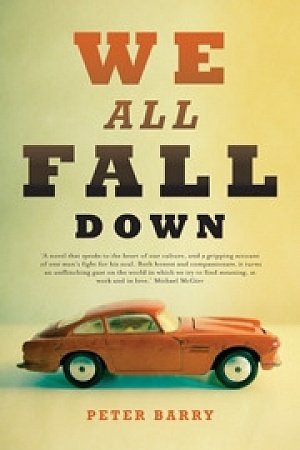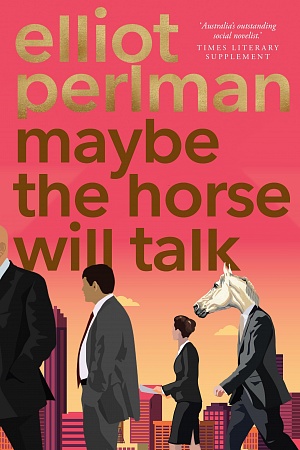Lucky’s
Picador, $32.99 pb, 357 pp
Cavalcade of coincidences
In Andrew Pippos’s immersive and multi-layered début novel, Lucky’s, a tragic shooting that occurs in the last bastion of a Greek-Australian restaurant franchise becomes the fulcrum around which mental health, heartbreak, displacement, and toxic masculinity are explored.
Spanning the years between 1913 and 2002 and taking place across multiple continents (though Sydney is its primary backdrop) Lucky’s oscillates between the perspectives of Vasilis ‘Lucky’ Mallios, Achilles Asproyerakas, Emily Main, and Ian Asquith – each of them bound to one another through happenstance, family ties, and, in perhaps the main theme of the book, deception.
Through a cavalcade of coincidences, the vast world these characters inhabit shrinks into a finely interwoven web, where each character’s actions reverberate to affect the others in unforeseen and pernicious ways. Pippos’s characters dance around the fine line between fate and self-determination, often grappling with the weight of intergenerational trauma and structural barriers. Emily wonders ‘if all she could ever be was the person she’d already become’, while Lucky ponders if failure and success ‘aren’t always determined by other people’.
The intermittent absurdity of the book – particularly in the highly visceral nature of Ian’s troubles and a dreamlike scene where a malnourished horse walks into Achilles’s café to disastrous consequences – coupled with the narrative’s serendipitous quality, only serves to underline its fantastical nature. Pippos writes towards myth while grounding his book in deeply human themes.
Lucky’s central conceits lie in how we respond to failure, how we live in the shadow of other people’s decisions, and how we elevate ourselves while staying true to our own ideas about who we are. Each character grapples with a sense of impostor syndrome – Lucky and Ian dabble with being fraudsters, while Emily grapples with a persistent sense of inferiority in her line of work, her marriage, and her life.
Reminiscent of works such as Meg Wolitzer’s The Interestings (2013) that interrogate the pursuit of specialness, Lucky’s is concerned with the stories we tell ourselves and the chasm between fact and fiction, the space where happiness may lie. One lasting preoccupation of the book, and its characters, is how extraordinariness may reside in ‘the glory of a lie that was as meaningful as the truth’.















Comment (1)
Leave a comment
If you are an ABR subscriber, you will need to sign in to post a comment.
If you have forgotten your sign in details, or if you receive an error message when trying to submit your comment, please email your comment (and the name of the article to which it relates) to ABR Comments. We will review your comment and, subject to approval, we will post it under your name.
Please note that all comments must be approved by ABR and comply with our Terms & Conditions.